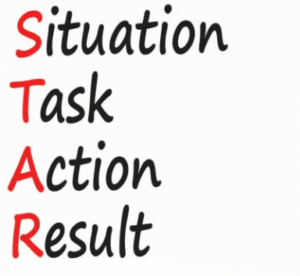You finally land an interview for the job you’ve been eyeing. Your application caught the recruiter’s attention, and now, the next step is to prove that you’re the best fit. But do you know exactly what lies ahead? Understanding the interview process can mean the difference between making it to the finish line or getting lost along the way. This guide will take you through every stage of the interview process, unpacking what happens, why it matters, and how to ace each step with confidence.
Let’s break down the journey from the first application to the final handshake. Each stage serves a purpose, and understanding these can help you easily navigate the often intense, sometimes nerve-wracking process.
Key Aspects of the Interview Process
1. Evaluation of Skills and Experience
At the core of the interview process is the evaluation of the candidate’s qualifications, experience, and technical skills. Employers need to ensure that the candidate possesses the necessary skills to perform the job effectively. This evaluation could be based on your previous job experience, educational background, certifications, and technical proficiency related to the role.
- Technical skills: For specialized roles (such as developers, engineers, or data analysts), technical assessments or questions will focus on your expertise in specific tools, languages, or platforms. Employers will also look for problem-solving capabilities and your ability to handle tasks specific to the role.
- Soft skills: These are equally important, particularly for roles in customer service, management, or sales. Employers want to ensure you have strong communication, teamwork, leadership, and conflict-resolution skills.
2. Understanding Cultural Fit
Cultural fit has become one of the most significant factors in the hiring process. It’s not just about hiring the best person for the job technically but also someone who will integrate well with the team and align with the company’s values, mission, and work environment. Employers use the interview process to assess how well your personality and work style mesh with their organizational culture.
For instance, some companies may place high importance on collaboration and teamwork, while others may emphasize independent work. During interviews, you may be asked about your preferred work environment, how you approach challenges, and how you deal with different types of people. These questions help employers determine whether you would thrive in their workplace culture.
3. Behavioral and Situational Assessments
Employers increasingly use behavioral and situational interview techniques to predict how candidates will behave in future situations based on their past experiences. This is where the famous “Tell me about a time when…” question comes in. In a behavioral interview, the hiring manager is looking for specific examples of how you handled certain situations in your previous roles.
Situational interviews, on the other hand, present hypothetical challenges to test your problem-solving abilities, decision-making skills, and how you might react to potential scenarios in the role. For example:
- “How would you handle a situation where a client is upset and demands a refund?”
- “Tell me about a time when you had to manage multiple deadlines—how did you prioritize your tasks?”
The goal is to see how you’ve applied your skills in the past and to assess how you would respond to similar challenges in the future.
4. Assessment of Motivation and Commitment
In addition to evaluating your skills and experience, interviewers also seek to understand your motivations and long-term commitment to the role. Companies want candidates who are not only qualified but also passionate about the work and genuinely excited about the opportunity.
Interviewers may ask questions like:
- “Why do you want to work at this company?”
- “What excites you about this role?”
- “Where do you see yourself in five years?”
These questions help the employer gauge whether you are likely to stay long-term and whether your career goals align with what the company offers.
5. Employer’s Opportunity to Sell the Role and Company
While the interview is primarily about the company evaluating you as a candidate, it also serves as an opportunity for you, the candidate, to assess whether the company and role are a good fit for your career goals and aspirations. This is why it’s important to ask insightful questions during the interview.
Interviewers will often take time to explain the company’s values, culture, and future plans, giving you a glimpse into the workplace and helping you decide whether the job aligns with your personal and professional goals.
For example, you might ask:
- “What are the biggest challenges facing the team right now?”
- “Can you tell me more about the company’s future direction and growth plans?”
- “How does the company support employee development and career growth?”
This two-way dialogue helps both parties determine whether the fit is right.
Interview Process in 8 Stages

1. Application and Resume Review: The First Impression
This stage is deceptively simple but incredibly important. The interview process begins with a review of your resume and application materials. At this stage, recruiters are skimming through resumes at lightning speed, often taking as little as 7-10 seconds to make an initial decision.
How to Stand Out
Crafting a concise, results-driven, ATS-friendly resume is essential. Emphasize relevant skills and achievements, use bullet points for easy reading, and tailor your resume to the specific job. You want to be clear, impactful, and memorable right from the start.
Keywords Matter
Using job-related keywords is crucial here, as many companies rely on applicant tracking systems (ATS) to filter resumes. By including specific terms from the job description, you increase your chances of making it to the next stage.
2. Initial Screening: A Glimpse Into Your Personality
Once your resume has passed the ATS filter, it typically goes to a recruiter or hiring manager for further review. Many companies start the interview process with a quick phone screen to determine if you’re worth investing more time in. This stage often feels informal, but don’t be deceived—it’s your first chance to make a real impression.
The Screening Call
The initial phone screen might be conducted by the recruiter or a member of the HR team. Expect questions that aim to understand your career goals, motivations, and whether you align with the company’s culture and values. You may also be asked about your salary expectations and availability.
How to Prepare
- Research the company. Know its values, culture, and recent developments.
- Prepare concise answers. Focus on delivering responses that highlight your skills and align with the job description.
- Practice active listening. Show engagement and ask one or two questions to express genuine interest.
3. Assessment Tests: Proving Your Skills
Many companies include skills assessments or personality tests as part of their interview process. These tests give recruiters an unbiased measure of your technical and soft skills. Depending on the role, you might be asked to complete tests on logic, reasoning, technical abilities, or even creativity.
Types of Assessment Tests
- Aptitude Tests: Measure general skills, such as verbal reasoning, math, and problem-solving.
- Technical Skills Tests: These tests, especially common in IT and engineering roles, evaluate your technical knowledge and ability to apply it.
- Personality Assessments: This helps companies gauge if your work style aligns with the company culture.
Acing the Test
If you know the type of test in advance, consider practicing online. Websites offer practice assessments that can help you familiarize yourself with the format and time limits.
4. First Round of Interviews: Meeting the Hiring Manager
Once you pass the initial assessments, the hiring manager usually conducts the first formal interview. This step of the interview process aims to learn more about your background and skills, evaluate your fit for the team, and learn about your career aspirations. The hiring manager may ask behavioral questions to assess how you handle situations and challenges.
Key Behavioral Questions
The hiring manager might use the STAR Method (Situation, Task, Action, Result) format, so be prepared to provide specific examples from your past experience.

Tips to Succeed
- Prepare STAR stories. Come up with at least three examples that showcase your abilities and soft skills.
- Be honest and professional. This is not the time for fluff or exaggerations. Authenticity resonates well.
- Showcase your knowledge of the role. Make sure you fully understand what’s expected of you and how you can contribute.
5. Technical Interviews: Showcasing Job-Specific Skills
In fields such as tech, engineering, and finance, the interview process often includes one or more technical interviews to evaluate job-specific skills. This stage can vary greatly depending on the role but usually involves practical tasks, coding challenges, or case studies.
Tips for Technical Interviews
- Practice, practice, practice. The best way to excel is to continuously work on similar problems or case studies.
- Explain your thought process. Interviewers are just as interested in how you solve a problem as they are in the solution itself.
- Stay calm under pressure. Technical part of the interview process can be intimidating, but maintaining composure is essential.
6. Final Interview: Making the Lasting Impression
The final interview is often with senior leaders or executives. This step of the interview process may focus on high-level topics, such as your alignment with the company’s mission, your leadership potential, or your long-term vision.
How to Shine in the Final Interview
- Showcase your values and ambitions. Executives want to know if your personal and professional goals align with the company’s direction.
- Be future-focused. Explain how you see yourself growing within the company.
- Ask thoughtful questions. Use this opportunity to discuss the company’s goals, culture, and how you would fit within the organization’s bigger picture.
7. Reference Check: Validating Your Experience
Congratulations—you’ve made it through the interview process! But before an offer is extended, companies will typically conduct a reference check. They may contact former supervisors, colleagues, or other professional contacts to confirm your qualifications and assess your work ethic and reliability.
Navigating the Reference Check
- Prepare your references. Let your references know they may be contacted and provide context on the role.
- Ensure consistency. Make sure your references’ feedback aligns with the information you’ve provided in your interviews.
- Choose reliable contacts. Ideally, your references should be recent managers or team leaders who can speak directly to your contributions.
8. The Offer: Reviewing and Negotiating
After completing all stages, the company may extend an offer. This is an exciting time, but remember to take a moment to thoroughly review the details, including salary, benefits, and other perks. It’s common to negotiate, so don’t shy away from discussing any aspects of the offer that matter to you.
Smart Negotiation Tips
- Know your worth. Research market rates for similar roles to ensure the offer is fair.
- Consider the full package. Look beyond salary—benefits, bonuses, and growth opportunities also matter.
- Communicate respectfully. Remember, negotiation is a conversation, not a demand. Be clear and respectful in your requests.
Challenges Faced in the Interview Process
Although interviews are designed to assess a candidate’s suitability, they can present several challenges. Here are a few common obstacles you might face:

1. Overcoming Nervousness
It’s natural to feel nervous before or during the interview process. Combat this by:
- Preparing thoroughly: The more prepared you are, the less you’ll feel anxious.
- Practicing deep breathing: To calm your nerves and stay focused during the interview.
2. Answering Unexpected Questions
Some interviewers may ask questions that are difficult to answer on the spot. If you face an unexpected question:
- Take a moment to think: Don’t rush into answering. A thoughtful pause shows you’re considering your response carefully.
- Stay honest: If you don’t know the answer, be honest and express your willingness to learn.
3. Handling Technical Questions
In technical interviews, candidates may face complex questions or problems. To prepare:
- Review core concepts related to the job role.
- Practice mock interviews to simulate real-world scenarios.
Best Practices to Follow During The Interview Process
Following these best practices can greatly increase your chances of success during the interview:
- Dress Appropriately: Choose an outfit that aligns with the company’s culture. In most cases, it’s better to be overdressed than underdressed.
- Be Punctual: Arrive on time for your interview. This shows respect for the interviewer’s time and demonstrates your professionalism.
- Ask Thoughtful Questions: This is your opportunity to demonstrate your interest in the role. Ask about company culture, team dynamics, and career growth opportunities.
Follow Up: Send a thank-you email after the interview, expressing gratitude and reiterating your interest in the position.
Wrapping Up
Understanding the interview process can be your secret weapon. Each stage of the interview process has its own set of challenges, but with preparation, insight, and confidence, you can tackle each one and advance closer to your goal. As you move from one step to the next, remember to stay true to yourself, put your best foot forward, and trust the journey.
Landing your dream job is not just about impressing others—it’s about finding a role that aligns with your strengths, values, and goals. So, go into each interview with a mindset of mutual evaluation, and don’t forget that you’re there to assess them, too. The right fit is worth the wait, and with this guide, you’re one step closer to achieving it.
